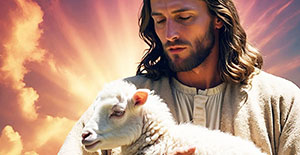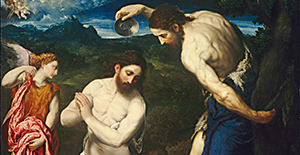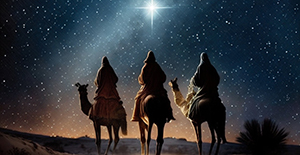BEHOLD THE LAMB – The Power of Submission

Isaiah 49:3, 5-6; Psalm 39(40); 1 Corinthians 1:1-3; John 1:29-34
2nd Sunday in Ordinary Time (Year A)
18th January 2026
Today, the liturgy shifts our gaze from the hidden life of Jesus to the moment His public mission begins. We stand on the banks of the Jordan with John the Baptist, who sees Jesus approaching and utters words that have echoed through centuries: “Behold the Lamb of God, who takes away the sin of the world.”
THE WATERS OF THE JORDAN: A PATTERN OF GRACE

Isaiah 42:1-7; Psalm 28(29):1-4, 9-10; Acts 10:34-38; Matthew 3:13-17
By Candida Kirkpatrick, OCDS
THE BAPTISM OF THE LORD
11th January 2026
Today we celebrate the Baptism of Our Lord, a moment when Jesus plunges into the depths of the earth to liberate humanity from original sin. In this act of profound humility, He empowers us with the Holy Spirit so that we might be reborn ‘by water and spirit’ as adopted children of the Father.
WISE MEN STILL SEEK HIM

Isaiah 60:1-6; Psalm 71; Ephesians 3:2-6; Matthew 2:1-12
The Solemnity of the Epiphany
4th January 2026
We recognise that the pilgrimage of these Eastern sages is the perennial journey of the soul. The Epiphany is not merely a narration of past events; it is the ongoing drama of the human heart’s orientation toward its Creator. Our Creator manifests as an infant, vested in the cloak of our humanity. Creative wisdom takes on a concrete existence and has become the light of all who seek real life.

